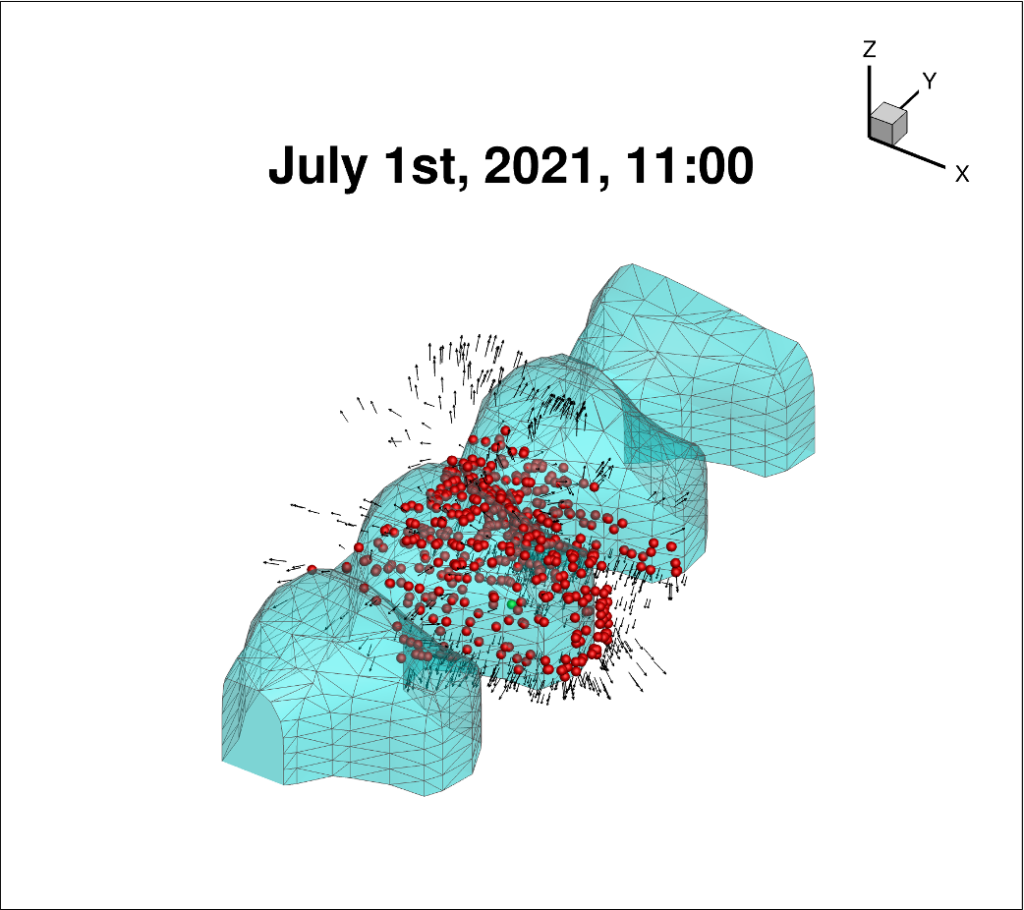
PROJECT DESCRIPTION
A computational framework was developed to trace light rays through next generation agrophotovoltaic greenhouses and calculate the power generated by solar cells surrounding the greenhouse as well as power absorbed by crops within the greenhouse. Agrophotovoltaic systems can be defined as energy generating systems integrated with agricultural production.
A geometric raytracing algorithm is used to trace the movement, reflection, and refraction of light interacting with a translucent greenhouse. Genomic based machine learning techniques were utilized to maximize greenhouse and photosynthetic power by optimizing the geometry, translucency, and material characteristics of the greenhouse. The effectiveness of a particular solar panel system is determined through a Monte Carlo survey of light ray tracing through the agrophotovoltaic system.
The quality of results were determined by running the simulation and producing an associated ”cost” with the output results. A representative numerical example was simulated for a individual greenhouse system within Berkeley, California for a single day. The optimized results produce physically intuitive results in which the greenhouse geometry “entraps” light to maximize power absorption. An immediate extension of this framework is the inclusion of wavelength specific ray tracing simulations in order to refine the model and further optimize the system.
An example application of this model is a digital twin used on existing greenhouse systems to accurately predict the power distribution of solar irradiance between the solar cells and crops. This can be utilized as a means of more efficiently applying power to sections of the greenhouse that require it. This model can also be used independently to qualitatively inspire greenhouse designs based on location and particular crop season.
RESEARCHERS
PI: Tarek Zohdi, GSR: Emre Mengi
This work is supported by the USDA/NSF AI Institute for Next Generation Food Systems (AIFS) through the AFRI Competitive Grant no. 2020-67021-32855/project accession no. 1024262 from the USDA National Institute of Food and Agriculture.